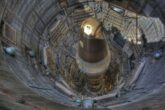November 26, 2014
A Delicate Atomic Dance: Managing the Aftermath of the Iran Nuclear Talks
With the agreement in Vienna between Iran and the P5+1 on an extension of the negotiations over Iran’s nuclear program, policy makers will now have to turn to the equally challenging and important task of managing the aftermath. From this point forward, American and Iranian negotiators will have to double down not only on negotiations with each other, but also on winning, and sustaining, support from other constituencies that could make or break prospects for nuclear diplomacy. Specifically, negotiators will have to sell the outcome to four groups: (1) the U.S. Congress; (2) Iranian hardliners; (3) nervous allies—most notably Israel and Saudi Arabia; and (4) the countries negotiating alongside the United States (together, the P5+1)—especially Russia and China.
Achieving success in nuclear diplomacy will require a very difficult balancing act. Inevitably, every stakeholder will face some disappoints. Obama and Rouhani will be challenged to effectively reassure or outmaneuver other parties, while avoiding their core interests that, if violated, would motivate any of them to scuttle a deal. This will not be an easy task, but it will make all the difference between a possibility for eventual success in negotiations that prevents Iran from obtaining a nuclear weapon, and a collapse of the talks that leads to escalating confrontation and a possibility of war.
A Way Out for Congress
In Congress, political momentum fortough action on Iran is strong, particularly in the aftermath of Republican gains in the 2014 midterm elections. Many legislators are looking for ways to exercise authority as representatives of a co-equal branch of government and express disapproval over how the administration has handled negotiations. They are contemplating the passage of new sanctions in an effort to turn up the heat on Iran and compel major concessions. But this strategy could backfire, notwithstanding the pro-diplomacy intent of some of its backers. The open question is whether Congressional action will ultimately proceed and be responsible for derailing nuclear diplomacy.
Read the full article at The National Interest.
More from CNAS
-
Indo-Pacific Security / National Security Human Capital Program
Time for US nuclear strategy to embrace no first useNo first use is the most meagre of many measures needed to restrain US presidential authority in the nuclear realm....
By Van Jackson
-
Defense / National Security Human Capital Program
If You Want Peace, Prepare for Nuclear WarIn a little under three decades, nuclear weapons have gone from center stage to a sideshow in U.S. defense strategy. Since the 1990s, the United States has drastically reduced...
By Elbridge Colby
-
National Security Human Capital Program
Trump's nuclear views are terrifying: ColumnThe contours of Donald Trump’s foreign policy are becoming disturbingly clear. Newspapers have labeled his thinking on international affairs "isolationist” and “unabashedly no...
By Mira Rapp-Hooper
-
Defense / National Security Human Capital Program
Elbridge Colby before the House Armed Services Subcommittee on Strategic ForcesElbridge Colby testified before the House Armed Services Subcommittee on Strategic Forces on adapting U.S. nuclear strategy and posture to a more contested and competitive wor...
By Elbridge Colby


